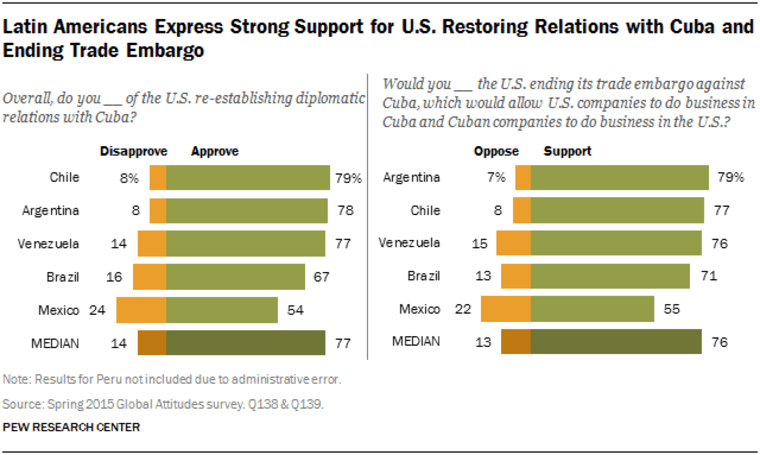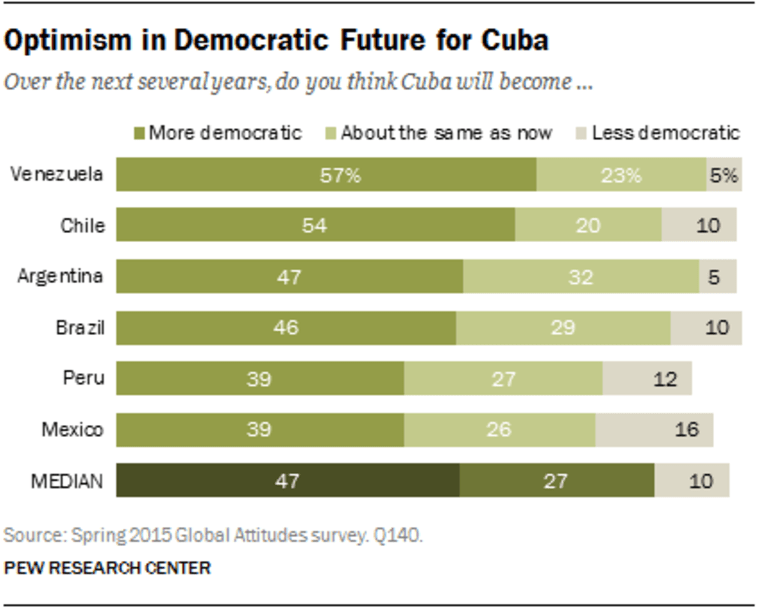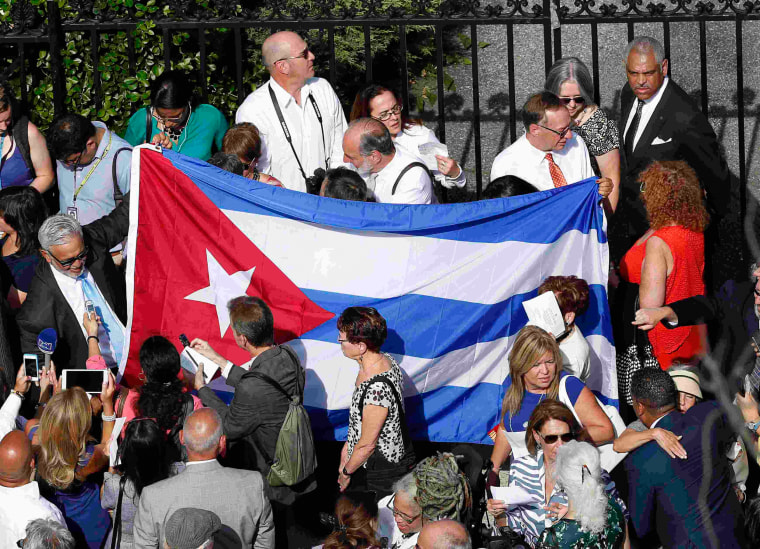A majority of Latin Americans approve of the re-establishment of formal diplomatic ties between the U.S. and Cuba and expect this will lead to greater democracy in the Caribbean country, according to a new report by Pew Research Center.
The highest support comes from Chile (79 percent), Argentina (78 percent) and Venezuela (77 percent). But two-thirds in Brazil and more than half in Mexico (54 percent) also approve this decision.

In all, about 77 percent of people in 5 of 6 Latin American countries surveyed approved of improved relations. The survey found that Venezuelans and Chileans are the most confident Cuba will become freer, while Peruvians and Mexicans express more skepticism.

More than half of Latin Americans have little or no confidence in President Raul Castro’s ability to handle international affairs as Cuba becomes more democratic. In Venezuela, 73 percent have no confidence in Castro while 61 percent of Mexicans believed Castro to be detrimental to Cuba.
Pew Research Center also found that there were income differences when it came to supporting an end of the U.S. embargo to Cuba. Latin Americans with higher incomes supported the end of the embargo more than lower-income respondents. In Argentina, 82 percent of high-income Argentinians support the U.S.’s decision, while 66 percent of those with a lower income agree.
The survey was conducted in six Latin American nations including: Argentina, Brazil, Chile, Mexico, Peru and Venezuela. In those countries, there were 6,000 respondents from April 6 to May 8, 2015.
Other Key Findings:
- Overall support for Cuba is strongest in Chile, the only country where a plurality has a positive view. In Venezuela, 42% have a favorable opinion of Cuba, similar to the 37% who held this view in 2014.
- Brazilians and Mexicans are the harshest in their ratings of Cuba, with majorities in each country holding an unfavorable opinion.

